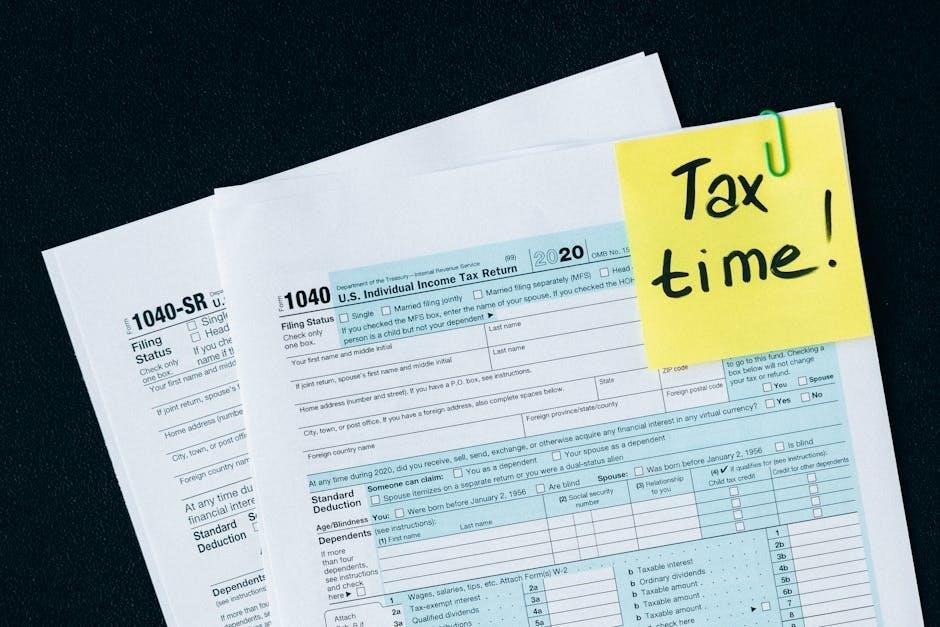
The Philadelphia Net Profits Tax (NPT) applies to residents and businesses operating within the city, targeting income from self-employment, businesses, and certain professions. It requires annual filings to ensure compliance with local tax regulations. Understanding the NPT is crucial for accurate calculations and timely submissions to avoid penalties. The tax is levied on net profits derived from business activities within Philadelphia, with specific forms and documentation required for filing. The city provides detailed guidelines and resources to help taxpayers navigate the process effectively.
Overview of the Net Profits Tax (NPT)
The Philadelphia Net Profits Tax (NPT) is a local tax imposed on individuals and businesses earning income within the city. It applies to net profits from self-employment, business activities, and certain professions. The tax is calculated based on income derived from Philadelphia-based operations. Taxpayers must file annual returns, ensuring accurate reporting of taxable income. The NPT rate and filing requirements are outlined by the Philadelphia Department of Revenue, with specific forms and guidelines available online to facilitate compliance. Understanding the NPT is essential for meeting tax obligations and avoiding penalties.
Importance of Understanding Tax Requirements
Understanding Philadelphia’s Net Profits Tax requirements is crucial for compliance and financial planning. Accurate tax filings prevent penalties, ensure timely payments, and avoid legal issues. The NPT applies to various income sources, including self-employment and business profits. Familiarity with tax forms, deadlines, and documentation ensures smooth processing. Staying informed about updates and changes is essential for maintaining compliance. Proper understanding of tax obligations helps individuals and businesses manage their finances effectively, contributing to the city’s economic stability and personal financial health.
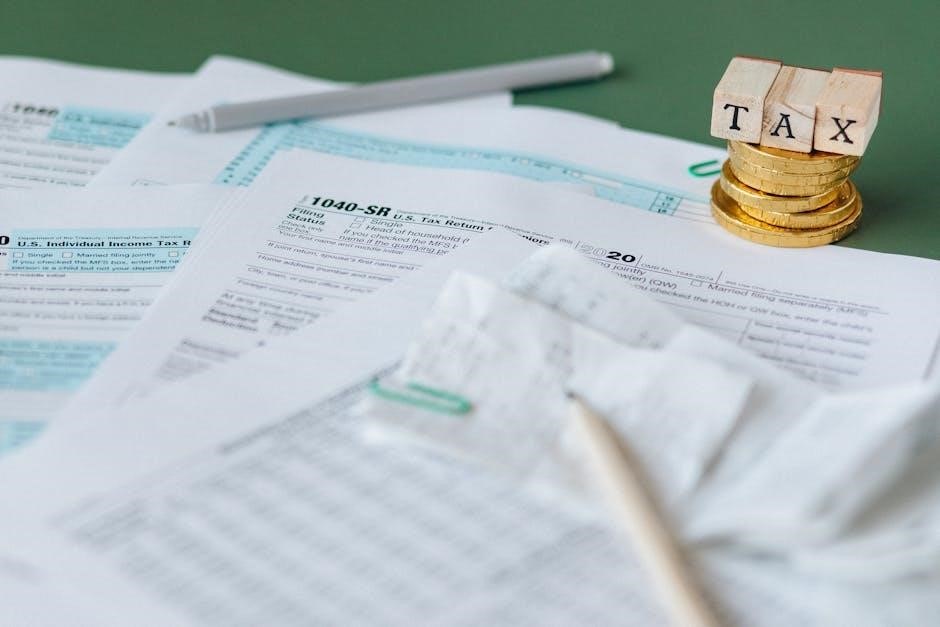
Eligibility and Taxable Income
The Net Profits Tax applies to self-employed individuals and businesses operating in Philadelphia. Taxable income includes profits from business activities, rental income, and self-employment earnings within the city.
Who Needs to File the Net Profits Tax Return
Self-employed individuals, businesses, and those with rental income within Philadelphia must file the Net Profits Tax Return. This includes residents and non-residents conducting business in the city. Taxable income encompasses net profits from business activities, self-employment earnings, and rental income generated within Philadelphia. Corporations are not subject to the NPT but must provide proof of pro rata share if applicable. Understanding eligibility ensures compliance with local tax regulations and avoids penalties for non-filing or late submissions.
Calculating Taxable Income for NPT
Calculating taxable income for the Net Profits Tax involves determining net profits from business activities within Philadelphia. This includes income from self-employment, rental properties, and other business ventures. Deductions for business expenses and losses are allowed, following federal tax guidelines; The taxable income is the net profit after these deductions. For self-employed individuals, earnings subject to the NPT must be calculated separately. Accurate documentation and records are essential to ensure correct calculations and compliance with city tax regulations, avoiding potential penalties or audits. Proper calculation ensures fair assessment of tax liability.
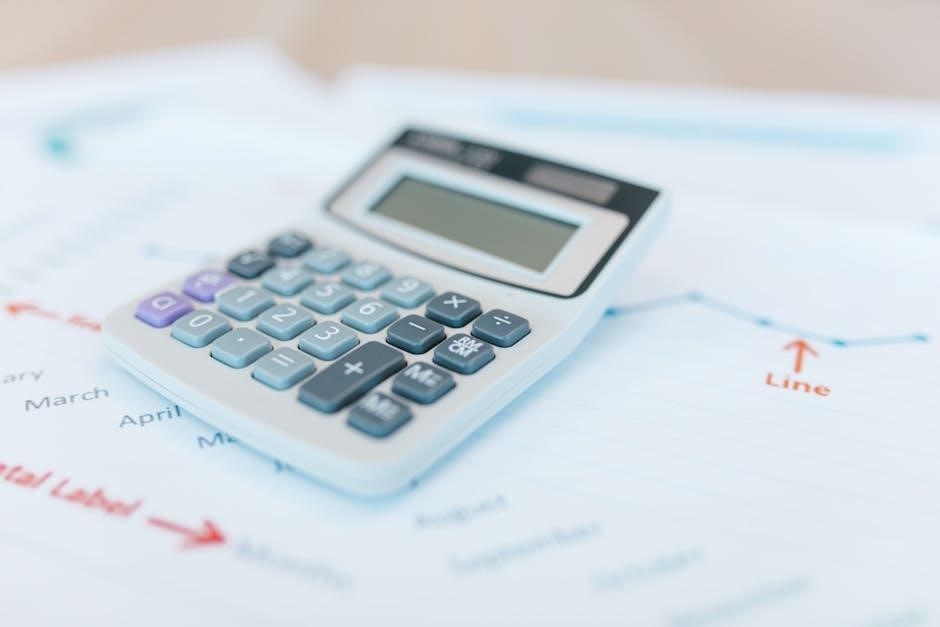
Filing Requirements and Deadlines
The Net Profits Tax return must be filed by April 15, with an automatic 60-day extension available. Forms are available on the Philadelphia Department of Revenue’s website. Late filing may result in penalties.
Registration with the City of Philadelphia
Registration with the City of Philadelphia is mandatory for all entities subject to the Net Profits Tax. Businesses and self-employed individuals must obtain a tax account number from the Philadelphia Department of Revenue. This registration ensures proper filing and payment tracking. The process typically involves submitting basic business information and verifying compliance with city tax laws. Once registered, taxpayers receive credentials for accessing online filing systems and submitting required documentation. Registration is a critical first step to avoid penalties and ensure smooth tax compliance.
Key Forms and Documentation Needed
Filing the Philadelphia Net Profits Tax requires specific forms and documentation. The primary form is the Philadelphia Net Profits Tax Return, which includes details about income, deductions, and calculations. Additional forms may include Schedule C for self-employed individuals, proof of business expenses, and documentation of tax payments. The city also requires submission of federal tax returns and any relevant state tax filings. Accurate and complete documentation ensures compliance and avoids delays in processing. Forms and instructions are available on the City of Philadelphia Department of Revenue website.
Filing Deadlines and Extension Options
The standard deadline for filing the Philadelphia Net Profits Tax Return is April 15 each year. Taxpayers can request an automatic 60-day extension without penalty by submitting a request online or by mail. No additional forms are required for this extension. The City of Philadelphia grants this extension to accommodate taxpayers who need more time to prepare their returns. For more details on filing deadlines and extensions, visit the City of Philadelphia Department of Revenue website at www.phila.gov/revenue. Ensure timely filing to avoid late penalties.

Instructions for Specific Taxpayer Groups
The Philadelphia Net Profits Tax provides tailored guidelines for different taxpayer groups, including self-employed individuals, businesses, and corporations. Resources and specific instructions are available online to assist with accurate filings.
Guidelines for Self-Employed Individuals
Self-employed individuals in Philadelphia must report net profits from their business activities. The NPT applies even if the business is conducted outside the city. Taxable income includes earnings from self-employment, less allowable deductions. Forms and instructions are available on the Philadelphia Department of Revenue website. Self-employed individuals must complete the Earned Income & Net Profits Tax Return and attach required documentation. The city follows federal tax treatment for self-employment income. Deadlines and extensions apply, with penalties for late filing. Consulting the city’s resources ensures compliance and accurate submissions.
Instructions for Businesses and Corporations
Businesses and corporations in Philadelphia must file the Business Income and Receipts Tax (BIRT) and Net Profits Tax (NPT) annually. Corporations are subject to BIRT but not NPT. The taxable income for corporations is calculated based on gross receipts. Businesses must complete the BIRT form and attach necessary documentation. Allowable deductions and credits must be itemized. Accurate financial records are essential for compliance. The Philadelphia Department of Revenue provides detailed guidelines and forms online to assist businesses in meeting their tax obligations. Timely filing and payment are critical to avoid penalties and ensure smooth operations.

Payment Options and Refund Process
The City of Philadelphia offers multiple payment methods for Net Profits Tax, including online payments, checks, and money orders. Refunds are issued for overpayments, with processing times varying. Taxpayers can check the status of their refunds online or by contacting the Department of Revenue. Accurate submissions ensure timely refunds, while errors may delay processing. Proper documentation is essential for both payments and refunds to maintain compliance and avoid potential issues.
Methods for Submitting Payments
Taxpayers can submit payments for the Philadelphia Net Profits Tax through various methods, including online payments via the Department of Revenue website using credit cards or e-checks. Payments can also be mailed with a check or money order payable to the City of Philadelphia, ensuring the tax account number is included. In-person payments are accepted at the Department of Revenue office, though this may involve longer processing times. Additionally, an automatic extension of up to 60 days may be granted for filing, but payment is still due by the original deadline to avoid penalties.
Understanding Refunds and Adjustments
Refunds for the Philadelphia Net Profits Tax are issued when overpayments occur. Taxpayers can request refunds by submitting the appropriate documentation, such as an amended return, within the specified timeframe. Adjustments may be made to correct errors or account for additional income. The Department of Revenue reviews these claims to ensure accuracy. Refunds are typically processed within a few months, while underpayments may result in additional taxes owed. Understanding the process for refunds and adjustments ensures compliance and avoids unnecessary delays or penalties.
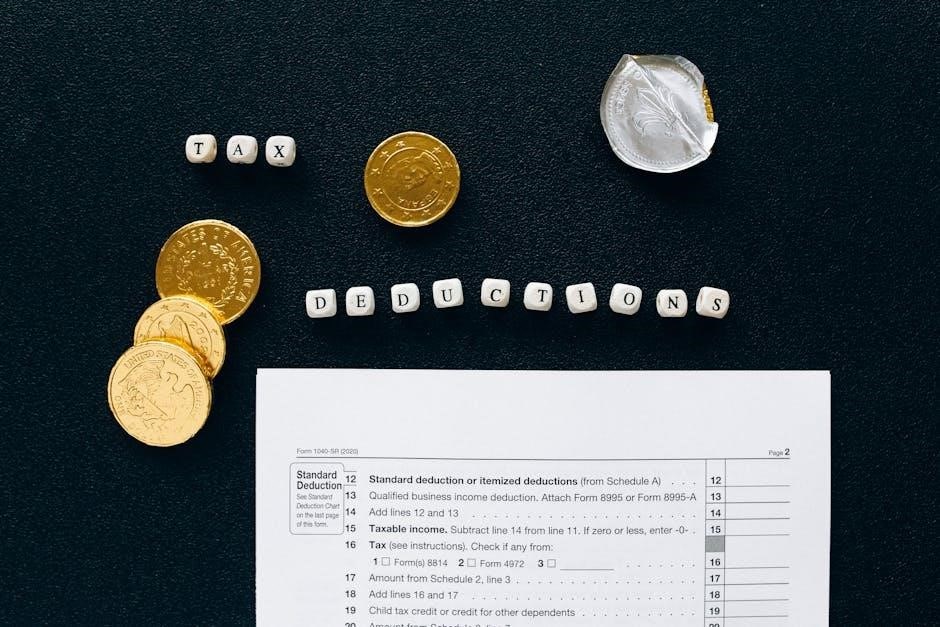
Compliance and Penalties
Compliance with Philadelphia Net Profits Tax requires timely filings and accurate payments. Penalties apply for late submissions or underpayments, emphasizing the importance of adhering to tax regulations.
Consequences of Late or Non-Filing
Philadelphia imposes penalties for late or non-filing of Net Profits Tax returns. Late submissions incur interest and fines, while non-filing may lead to audits, additional fees, and legal actions. Timely compliance ensures avoidance of these penalties and maintains good standing with the city. The Department of Revenue encourages taxpayers to address filing issues promptly to prevent escalating consequences. Understanding these penalties emphasizes the importance of adhering to filing deadlines and requirements.
Audits and Appeal Processes
The Philadelphia Department of Revenue conducts audits to ensure compliance with Net Profits Tax regulations. Taxpayers may face penalties if discrepancies are found. If audited, maintaining accurate records is crucial for resolving issues. Appeals can be filed if taxpayers disagree with audit results, following specific procedures outlined by the city. Understanding the appeal process helps taxpayers address disputes effectively. Proper documentation and professional advice are recommended to navigate audits and appeals successfully, ensuring fair resolution and compliance with city tax requirements.
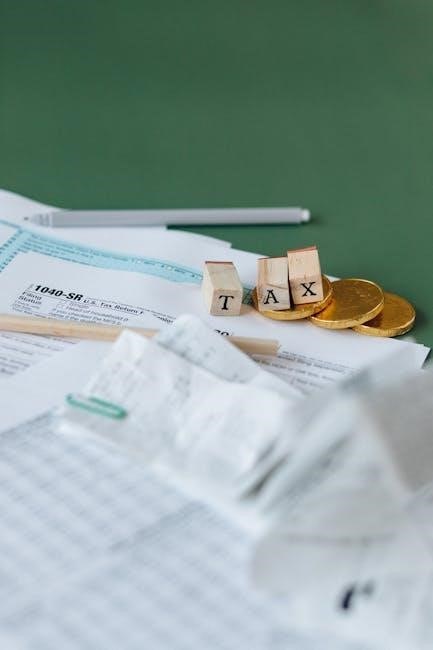
Additional Resources and Support
Visit the City of Philadelphia’s Department of Revenue website at www;phila.gov/revenue for downloadable forms, guides, and detailed instructions. Contact their office for personalized assistance and clarification on NPT-related inquiries.
Accessing Forms and Guides Online
The City of Philadelphia’s Department of Revenue provides convenient online access to NPT forms and instructional materials. Visit www.phila.gov/revenue to download the NPT-1 and NPT-2 forms, along with detailed instruction booklets. The website also offers FAQs, tax calculators, and step-by-step guides to assist with accurate filings. Additionally, electronic filing options are available for streamlined submissions. For further assistance, access online tutorials or contact the Department of Revenue directly for personalized support.
Contacting the Philadelphia Department of Revenue
For inquiries regarding the Net Profits Tax, taxpayers can contact the Philadelphia Department of Revenue through multiple channels. Visit their office at 1101 Market Street, Philadelphia, PA 19107. Call (215) 686-6600 for assistance Monday through Friday, 8:30 AM to 5:00 PM. Additionally, email revenue@phila.gov for questions or concerns. The website also features an online chat service and a comprehensive FAQ section to address common queries. Ensure timely communication for any tax-related issues or clarifications needed.
Accurate and timely filing of the Philadelphia Net Profits Tax ensures compliance with city regulations. Utilize the Department of Revenue’s resources and guidelines for a seamless process.
Final Tips for Accurate and Timely Filing
Ensure all required forms and documentation are complete and accurate. Double-check calculations for taxable income and apply the correct tax rates. Submit payments electronically for faster processing and consider filing for an extension if needed. Stay updated on any tax law changes and utilize resources from the Philadelphia Department of Revenue for guidance. Timely filing avoids penalties and ensures compliance with city tax regulations, maintaining a smooth and efficient process for all taxpayers.